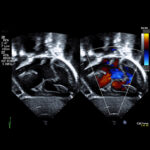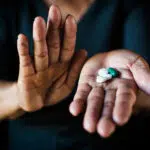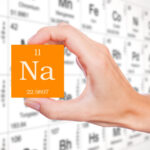Congenital Heart Defect Awareness Week is held every year from February 7 to 14. According to the Centre for Disease Control and Prevention, CHDs are the leading birth defects that cause death in infants and adults. Approximately 1% of births per year are affected by CHDs, which exist from birth and often affect the structure and shape of a baby’s heart. Because the condition is so prominent and is a leading cause of death in children, it is very important to make medical professionals, researchers, families, and the general public to be more aware of the condition.
History of Congenital Heart Defect Awareness Week
In the U.S. alone, about 40,000 newborns are born with congenital cardiac disease each year, with an estimated 20 babies out of 10,000 being born with the ailment. If you ask us, these are high numbers, but has this sickness always been present, or is it a recent occurrence?
CHDs have been a medical topic of discussion since the 1800s, when Thomas Beville Peacock, a London physician who wrote a monograph on heart abnormalities, conducted extensive research. He was able to classify CHD into four categories and also discussed the causes of CHD, proposing most forms to be caused by abnormalities during the development stage of the embryo. He also deduced that underlying causes may have to do with environmental factors and hereditary predisposition. He also determined that environmental circumstances and hereditary predisposition may play a role in the underlying causes. Hellen Brook Taussig, perhaps one of the top cardiologists of all time, authored the first complete book on congenital cardiac abnormalities in the 20th Century. She further expanded in more detail on some intrinsic and extrinsic factors that may lead to CHDs.
Since the 90s, the condition has been one of the leading causes of defect-related deaths with over 360,000 deaths in 1990. To date congenital heart is one of the most common births, they were present in almost 50 million in 2015. But alas there is hope as the last recent years have witnessed the birth of new CHD intervention methods and with the biotech revolution, there will be even more innovations.
Congenital Heart Defect Awareness Week timeline
Thomas Bevill Peacock a physician at St Thomas Hospital in London, writes a comprehensive monograph titled “On Malformations of the Human Heart”.
John Maurice Campbell a cardiologist and a founding member of the Cardiac Society of Great Britain and Ireland helps host an event where the very first shunt procedures for CHD are performed.
The pulse oximetry screening for critical heart conditions is introduced in New Jersey, as recommended by the Health Secretary’s Advisory Committee for Heritable Disorders in Newborns.
The researchers at Transcatheter Cardiovascular Therapeutics introduce a new technique for cross-wiring caps during surgery.
Congenital Heart Defect Awareness Week FAQs
What is a congenital heart defect?
This is a condition that occurs when the heart or blood vessels near the heart do not develop normally. This then typically affects the function of the heart and is seen in one in 100 children.
What causes congenital heart defects?
Several environmental and genetic factors may play a significant role in the development of CHD. But It Is caused when something disrupts the normal development of the heart.
Is there a cure for congenital heart disease?
There is currently no known cure for CHD, many people repair their hearts by having surgery, and there are certain medications recommended to patients to help alleviate the symptoms.
How to Observe Congenital Heart Defect Awareness Week
Help the researchers
There are several articles and surveys about CHD. Take some time today to fill out some of those surveys and participate in forums coordinated by local organizations.
Tell your online friends
If you're someone who's been personally affected by CHDs, consider sharing your story and facts on social media. Use the hashtag #CHDAwareness to help engage your friends and families.
Help raise some funds
If you are moved, you can arrange a fundraiser or a charity event to gather funds for the cause. If you would rather donate, there are plenty of like-minded groups you may support online.
5 Facts About Congenital Heart Disease Preventative Measures
No drinking or smoking
It is crucial to refrain from smoking or drinking when pregnant as this is one of the leading causes of CHD.
Take folic acid
During pregnancy, women need to take at least 400 mg of Folic acid daily; this vitamin plays a crucial role in the prevention of CHD.
Avoid soda and sugar
I know we all have cravings during this period but it is very important to keep your blood sugar level in check, especially if you have diabetes.
Check your family history
Check your family history to be informed if anyone in your family has ever been affected.
Be careful of what meds you take
Do not take any unprescribed or unrecommended medication; ensure you get your doctor’s approval before taking any vitamins or supplements.
Why Congenital Heart Defect Awareness Week is Important
It reminds us of our health care workers
This week, families of those with CHD can show their appreciation for the help they receive. They get to thank all the medical staff and researchers who dedicate their lives to caring for people with congenital heart defects.
It celebrates the patients
A major part of this holiday is to celebrate the lives of people with CHDs. It is also a time to remind families that they are not alone in their suffering.
It educates us
CHDs Awareness week is all about passing on vital information. It seeks to educate physicians and health professionals on early intervention methods that can be taken as well as inform families involved on the type of care and treatments available.
Congenital Heart Defect Awareness Week dates
| Year | Date | Day |
|---|---|---|
| 2026 | February 7–14 | Saturday–Saturday |
| 2027 | February 7–14 | Sunday–Sunday |
| 2028 | February 7–14 | Monday–Monday |
| 2029 | February 7–14 | Wednesday–Wednesday |
| 2030 | February 7–14 | Thursday–Thursday |



























